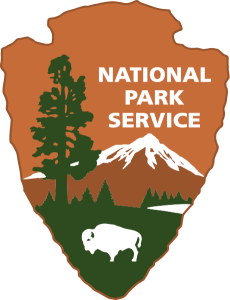 Today, I would like to discuss what I am doing to design my own destiny and how I am working to open doors to new opportunities.
I see my blog as a practical history blog: A resource for independent and post-academic historians who want to surmount the obstacles we face because we are unaffiliated with academic institutions and a discussion forum where we can explore different ways of working and how we can turn our passion for history, research, and writing into careers that pay. In support of this forum, I plan to post more about how I am trying to create new opportunities and how these experiences unfold, for better and worse, in the hope that we all might learn from them.
Today, I would like to discuss what I am doing to design my own destiny and how I am working to open doors to new opportunities.
I see my blog as a practical history blog: A resource for independent and post-academic historians who want to surmount the obstacles we face because we are unaffiliated with academic institutions and a discussion forum where we can explore different ways of working and how we can turn our passion for history, research, and writing into careers that pay. In support of this forum, I plan to post more about how I am trying to create new opportunities and how these experiences unfold, for better and worse, in the hope that we all might learn from them.
Please contact me if you have a helpful experience that you would like to share or an issue that we independent historians face that you would like to discuss.
I am almost 18 months removed from graduation and I am still in transition, trying to figure out what I want my career to be. I am a historian and I want to continue working as one. But how can I turn my passion into a career?
Naturally, I have been researching some possibilities.
Public History
 I have some experience in public history. I worked for the National Park Service as a seasonal interpretive ranger as an undergraduate. I learned how to develop and present interpretive programs and how to interact with the public. As a graduate student, I volunteered for a couple of historical societies and museums where I conducted research, built finding aids for collections, and developed educational programs.
I have some experience in public history. I worked for the National Park Service as a seasonal interpretive ranger as an undergraduate. I learned how to develop and present interpretive programs and how to interact with the public. As a graduate student, I volunteered for a couple of historical societies and museums where I conducted research, built finding aids for collections, and developed educational programs.
Even when combined with my Ph.D., this experience is not enough to land me an interview for a public history job. Times are tough. Public institutions want people with history backgrounds who also possess social media and digital humanities skills, curatorial experience, and an understanding of the inner workings of a non-profit organization.
Over the last month I have applied for internships. Unfortunately, I have yet to hear anything. I worry that my Ph.D. hinders me; I get the feeling that many think, “she has a Ph.D., would she really intern for free?” The answer is “YES!” I am anxious to learn the skills needed to work for a public history institution and will work for free to acquire them. (Of course, so would many others.)
I am also trying to create my own luck. I have reached out to my local history society contacts to see about creating an experience. Hopefully between my applications and contacts I will be able to garner an interview and internship.
 Freelance Writer
Freelance Writer
Freelance writing would allow me to do what I love, make some money, and still leave me with time to work on my historical projects.
I have signed up for a workshop called Freelancing Writing Essentials. This daylong seminar will supposedly serve as a crash course on where to look for freelance writing opportunities, how to come up with ideas, and how to pitch stories. It will take place next Friday. I will post about it later this month.
Networking
Okay, so this isn’t a career, but it is important. Whenever I meet another historian, I always ask them about their work and how they obtained their job. With regards to the latter I overwhelmingly hear: “Luck” and “I knew someone."
Over the last several months I have pursued two avenues that have, and will, help expand my network of contacts beyond the academy.
 First, I have engaged in social media. I have found Twitter to be a great way to network with other historians, writers, explorers of alternate and post-academic careers, and, yes, other Boston sports fans. I have had meaningful conversations with other Twitterers and they have shared links to helpful information, job postings, and events that I would not have found on my own. (For more on Twitter see my 3 part series “How to Twitter.”)
First, I have engaged in social media. I have found Twitter to be a great way to network with other historians, writers, explorers of alternate and post-academic careers, and, yes, other Boston sports fans. I have had meaningful conversations with other Twitterers and they have shared links to helpful information, job postings, and events that I would not have found on my own. (For more on Twitter see my 3 part series “How to Twitter.”)
Second, I have volunteered to be a docent at Boston by Foot, a non-profit, volunteer tour group that gives history and architectural tours of Boston. I pursued this opportunity as a way to get my head out of my work, to meet other people, and to reconnect with the public; I want to be reacquainted with why and how non-academics appreciate and learn history.
I am still training, but I have already met several interesting individuals and made a few new friends all with different professional backgrounds. Best of all, everyone there loves and appreciates history. Perhaps one of them will open the door to a new career opportunity that I never thought of.
What Do You Think?
If you would like to share your experiences working in public history, with freelance writing, networking, or some other career path that allows you to pursue your scholarship and earn money, please contact me.